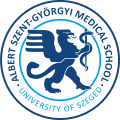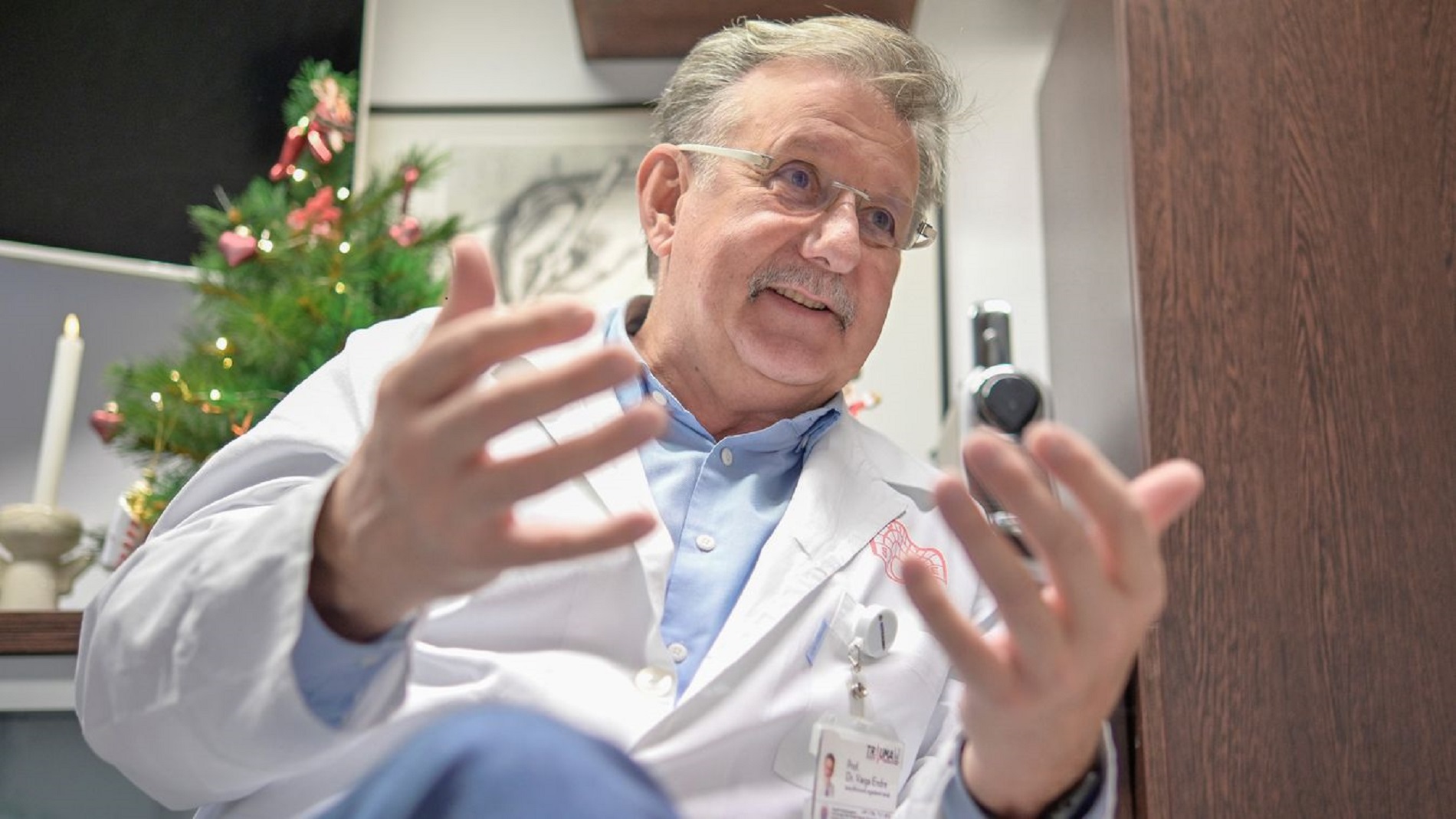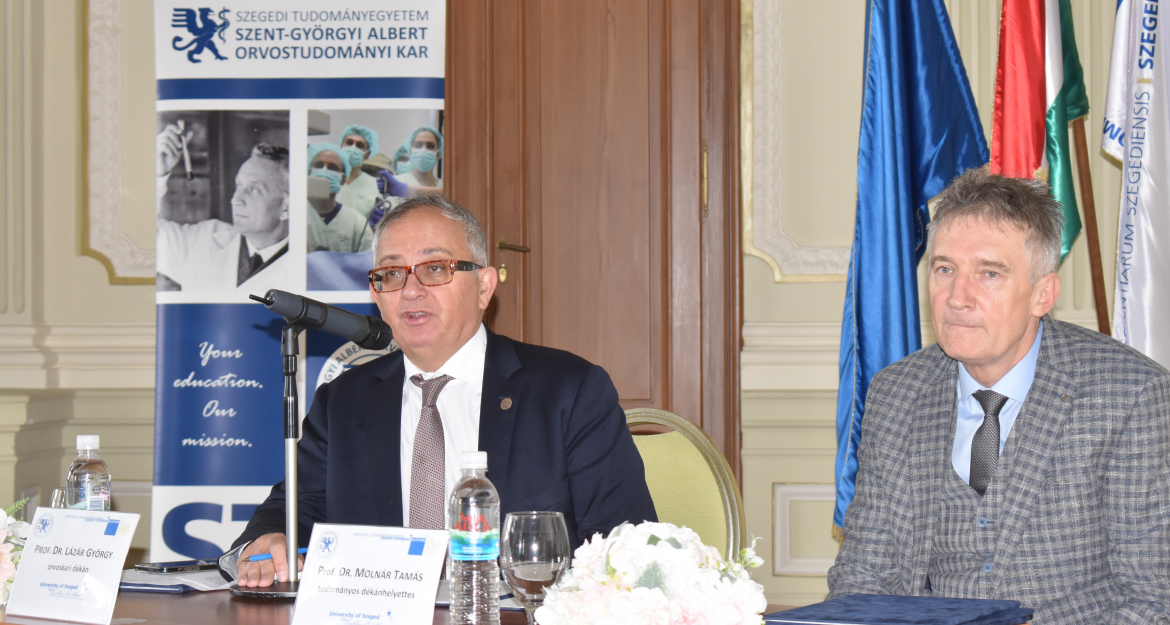
The mission of the Albert Szent-Györgyi Medical School
Motto: "The future will be like the school of today"
Albert Szent-Györgyi
The University of Szeged considers the founding of the University of Cluj in 1581 as its ideological and historical root. Medical education in Szeged started in 1921, when the four faculties of the University of Cluj moved to Szeged. The University is an outstanding educational and scientific center of excellence in Hungary, and the Medical Faculty makes a significant contribution to the achievements of the institution. The past and the present of the Faculty are determined by its many internationally renowned professors, first of all by Albert Szent-Györgyi, the world-famous biochemist, who was awarded the Nobel Prize in Physiology in 1937 in recognition of his research work conducted in Szeged, Hungary. Albert Szent-Györgyi's innovation, scientific courage, and commitment to teaching, research, and public engagement are reflected in the strategic goals of our Faculty. The mission of the Faculty is to preserve the triple unity of education–research–patient care, which ensures the continuous development of these areas: maintaining national and international excellence in medical education and training, in theoretical and clinical research, and in therapeutic work. The Faculty’s mission in education is not only to provide up-to-date theoretical and practical knowledge and to develop problem-solving skills, but also to prepare students to be creative intellectuals. The main objectives of our research activities are to support innovative scientific work for the benefit of medicine, and to strengthen the international recognition of basic and clinical research. The Medical Faculty is actively involved in talent management and ensures the supply of doctors, teachers, and researchers for our Faculty and for the University. In order to have its fair share of social responsibility, the Faculty plays a prominent role in shaping the health policy of the region and Hungary.





